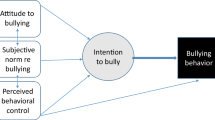Abstract
Teacher countertransference refers to conscious and unconscious, negative or positive emotional reactions to certain students that arise from the teacher’s own areas of personal conflict. Our investigation of 14 expert teachers’ countertransference experiences in the college classroom, yielded several themes. Countertransference triggers included challenging behaviors (e.g., student disengagement from learning, hostility, manipulation). Countertransference reactions included frustration, the questioning of one’s own judgment, and identification with students. Participants managed countertransference by seeking social support, maintaining their professionalism, thinking before responding, practicing self-reflection, building relationships with students, and drawing upon personal characteristics (values, empathy, conceptualization skills) and teaching experience. We suggest implications for teaching and recommendations for research.
Similar content being viewed by others
References
Barr, R. B., & Tagg, J. (1995). From teaching to learning - a new paradigm for undergraduate education. Change, 27(6), 12–25.
Feldman, K. A. (1989). The association between student ratings of specific instructional dimensions and student achievement: Refining and extending the synthesis of data from multisection validity studies. Research in Higher Education, 30(6), 583–637.
Gelso, C. J., & Carter, J. A. (1985). The relationship in counseling and psychotherapy: Components, consequences, and theoretical antecedents. The Counseling Psychologist, 13(2), 155–243.
Grauerholz, L. (2001). Teaching holistically to achieve deep learning. College Teaching, 49(2), 44–51.
Hativa, N., Barak, R., & Simhi, E. (2001). Exemplary university teachers: Knowledge and beliefs regarding effective teaching dimensions and strategies. Journal of Higher Education, 72(6), 699–729.
Hayes, J. A. (2004). The inner world of the psychotherapist: A program of research on countertransference. Psychotherapy Research, 14(1), 21–36.
Hill, C. E., Thompson, B. J., & Williams, E. (1997). A guide to conducting Consensual Qualitative Research. The Counseling Psychologist, 25(4), 517–572.
Hofsess, C. D., & Tracey, T. J. G. (2010). Countertransference as a prototype: The development of a measure. Journal of Counseling Psychology, 57(1), 52–67.
Lowman, J. (1994). Professors as performers and motivators. College Teaching, 42(4), 137–141.
Mills, J. (1998). Better teaching through provocation. College Teaching, 46(1), 21–26.
Murray, H. G. (1997). Effective teaching behaviors in the college classroom. In R. P. Perry & J. C. Smart (Eds.), Effective teaching in higher education (pp. 171–204). New York, NY: Agathon Press.
Palmer, P. J. (1998). The courage to teach. San Francisco, CA: Jossey-Bass.
Raider-Roth, M. B. (2005). Trusting what you know: The high stakes of classroom relationships. San Francisco, CA: Jossey-Bass.
Roberts, A., & Smith, K. I. (2002). Managing emotions in the college classroom: The cultural diversity course as an example. Teaching Sociology, 30(3), 291–301.
Robertson, D. L. (1996). Facilitating transformative learning: Attending to the dynamics of the educational helping relationship. Adult Education Quarterly, 47(1), 41–53.
Robertson, D. L. (1999a). Professors’ perspectives on their teaching: A new construct and developmental model. Innovative Higher Education, 23(4), 271–294.
Robertson, D. L. (1999b). Unconscious displacements in college teacher and student relationships: Conceptualizing, identifying and managing transference. Innovative Higher Education, 23(3), 151–169.
Robertson, D. L. (2000a). Enriching the scholarship of teaching: Determining appropriate cross-professional applications among teaching, counseling, and psychotherapy. Innovative Higher Education, 25(2), 111–125.
Robertson, D. R. L. (2000b). Professors in space and time: Four utilities of a new metaphor and developmental model for professors-as-teachers. Journal on Excellence in College Teaching, 11(1), 117–132.
Robertson, D. R. (2001). Beyond learner-centeredness: Close encounters of the systemocentric kind. Journal of Faculty Development, 18(1), 7–13.
Rodolfa, E., Hall, T., Holms, V., Davena, A., Komatz, D., Antunez, M., & Hall, A. (1994). The management of sexual feelings in therapy. Professional Psychology: Research and Practice, 25(2), 168–172.
Rosenberger, E. W., & Hayes, J. A. (2002). Origins, consequences, and management of countertransference: A case study. Journal of Counseling Psychology, 49(2), 221–232.
Roth, J. K. (Ed.). (1997). Inspiring teaching: Carnegie professors of the year speak. Bolton, MA: Anker.
Yeh, Y., & Hayes, J. A. (2011). How does disclosing countertransference affect perceptions of the therapist and the session? Psychotherapy, 48(4), 322–329.
Young, S., & Shaw, D. G. (1999). Profiles of effective college and university teachers. Journal of Higher Education, 70(6), 670–686.
Author information
Authors and Affiliations
Corresponding author
Rights and permissions
About this article
Cite this article
Slater, R., Veach, P.M. & Li, Z. Recognizing and Managing Countertransference in the College Classroom: An Exploration of Expert Teachers’ Inner Experiences. Innov High Educ 38, 3–17 (2013). https://doi.org/10.1007/s10755-012-9221-4
Published:
Issue Date:
DOI: https://doi.org/10.1007/s10755-012-9221-4




